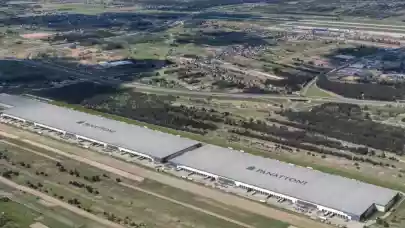
Marek Blaha, Head of affordable housing developer Dostupné bydlení České spořitelny, talked to Property Forum about the necessity of expanding the overall availability of housing in the Czech Republic. According to him, one of the strategies to solve such a problem could lie in augmenting the proportion of rental housing and this could be supported by the cooperation of banks, municipalities and developers.
Why was Dostupné bydlení established? What prompted your investment in affordable housing within the Czech market?
In the Czech Republic, property prices are escalating at the fastest rate in Europe. Czechs now require twelve to fourteen annual salaries to purchase an average seventy-square-meter apartment, the highest among European nations. For comparison, the Portuguese require only four years' worth of salaries. Presently, an apartment in Prague costs between CZK 8-10 million (€328,000 - €410,000), necessitating a savings of at least CZK 1-1.5 million (€41,000 - €61,500) to own a home. For young families and middle-class individuals with average incomes, homeownership in the Czech Republic is essentially unattainable. This poses an alarming social threat—a ticking time bomb. In a society where prosperity is lacking and people are not thriving, no bank can flourish, let alone the largest one.
Consequently, we deliberated on potential solutions and swiftly concluded that destigmatizing rental housing is pivotal. The avenue to expanding the overall availability of housing primarily lies in augmenting the proportion of rental housing. Currently, only a quarter of Czechs reside in rental housing, whereas elsewhere in Europe, it comprises a third or even half of the population. Erste Group, our parent company in Vienna, has been providing affordable housing, maintaining stable rent, with a portfolio of fourteen thousand apartments for sixty years. Inspired by this, Česká spořitelna established a subsidiary, Dostupné bydlení ČS, to invigorate the affordable rental housing market.

Marek Blaha
CEO
Dostupné bydlení České Spořitelny
What is the projected investment for this housing model within a specified timeframe?
In the foreseeable future, we plan to offer a thousand affordable rental apartments across the Czech Republic. These units will be leased at a 20% discount compared to the prevailing market rates in respective localities, with rental costs amounting to less than 30% of the disposable income of the target group. This group encompasses professionals from the public sector (e.g., teachers, nurses, police officers, etc.). It's crucial to emphasize that tenant selection in our projects will not be determined by the bank but will always remain under the purview of the founders, i.e., public administration institutions. An external property management company will oversee the operation and maintenance of the buildings.
Initially, did you plan to develop your projects and acquire buildings constructed by developers? Has this strategy evolved?
From the outset, our strategy has been twofold. The first involves acquiring developer projects, subsequently converting them into affordable rental housing in collaboration with municipalities. The second direction entails constructing affordable rental apartments directly on lands owned by municipalities. While our initial three projects in Prague were based on purchasing existing developer projects, we are soon introducing our maiden project outside of Prague, where we will build on designated lands belonging to the municipality.
You have already commenced two distinct residential projects in Prague in Prosek and Opatov and are poised to introduce another project now. Can you divulge some specifics?
Our third Prague project has recently commenced in the Harfa neighbourhood in Prague 9. Harfa will encompass 220 apartment units, further bolstering our commitment to affordable rental housing for professionals in healthcare, education, social services, security, and rescue services.
Why did you opt to seek partnerships among municipalities? How seamless is the collaboration with them?
Local governments are best equipped to identify suitable tenants from essential professions in need of affordable rental housing. This fosters their retention in the locality, bolstering its prosperity.
How do you intend to manage your projects upon completion? Do you plan to handle this internally?
The operation and management of the buildings will always be entrusted to an external property management company. Additionally, I reiterate that the allocation of apartments to tenants will be the responsibility of the city, not the bank.
Why the focus on housing for specific professions in your projects?
To support the sustainable development of cities and municipalities, augmenting housing availability is imperative. Failure to do so might result in a dearth of healthcare workers, teachers, or police officers in certain localities due to inadequate housing options. We have forecasted that homeownership will likely remain accessible only to the top 20% of the population in terms of income. As the largest bank in the country, we've chosen to address this issue.
How do you envision the company's future in 10 years?
Dostupné bydlení ČS might not single-handedly resolve the current housing unavailability problem in the Czech Republic. If we build and finance 3-4 thousand affordable rental apartments by 2030 and catalyse the market for such housing to match homeownership acceptance, our mission will succeed. At the Czech Bank Association, we also endorse our government's work on A.H. programs and subsidized financing for municipalities - a positive step for the country’s future prosperity.



